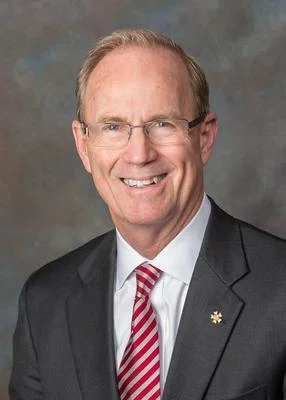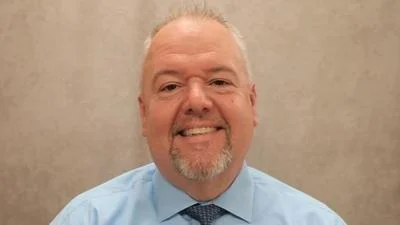A suggestion floated during a recent Chicago-area conference calling for a state property tax and another for a progressive income tax would be crazy to adopt, Sen Jim Oberweis (R-Sugar Grove) said during a recent interview.
"I think it is insane," Oberweis said during a DuPage Policy Journal telephone interview. "I don't think it will happen. If it did, it would be disastrous for the state of Illinois."
Absolutely no support for such a proposal exists among constituents in the state, Oberweis said. "The biggest complaint we hear from our constituents is that their property taxes are so high that they can't afford to stay in Illinois," he said. "Illinois is the only state that has lost population the last three years in a row; I think this would be a further impetus for people to leave the state."

Sen. Jim Oberweis (R-Sugar Grove)
The progressive income tax would be the worse of the two proposals, Oberweis said. "Right now we have a flat income tax of 4.9 percent," he said. "They have a schedule that might go 2 percent, 4 percent, 8 percent, 12 percent, similar to what California has."
That would "drive the biggest tax payers out of the state and quickly," he said.
In a sold out gathering partnered by the Civic Federation and the Federal Reserve Bank of Chicago in April, a Chicago Fed speaker suggested a state property tax levy estimated at about 1 percent of actual property value each year for the next three decades. That special property assessment would be in addition to current local property taxes in Illinois, which are the second highest in the nation behind New Jersey.
Wirepoints, which covered the event, called the special property assessment proposal "among the most blatantly inhumane and foolish ideas we’ve seen yet," in a recent article.
"Homeowners with houses worth $250,000 would pay an additional $2,500 per year in property taxes; those with homes worth $500,000 would pay an additional $5,000; and those with homes worth $1 million would pay an additional $10,000," the Wirepoints article said. "Are they blind to human consequences? Confiscatory property tax rates have already robbed hundreds of thousands, maybe millions, of Illinois families of their home equity - probably the lion's share of whatever wealth they had."
Oberweis said that existing property taxes in Illinois have for years caused business owners to look outside the state for better places to expand, adding that his family's business, Oberweis Dairy based in North Aurora with 43 stores mostly in Illinois, is no exception. "I will tell you that as we're looking at new properties to buy to develop new stores, we have just recently decided that we're going to start looking in Indiana, Wisconsin and Missouri – anywhere but Illinois – for property to buy," he said. "And if we do open up new stores in Illinois, we're probably just going to lease."
High property taxes in Illinois are directly linked to declining property values in the state, Oberweis said. "If you stop and think about it, what makes property, your land, go up in value?" he said.
"Well, I would say two things," he said. "One, increasing population, which we don't have; and the other is reasonable or low property taxes, which we don't have. Two things that would be negative to property values are declining population and high property taxes."
Illinois' property tax situation has gotten where it has in large part because of "inside interests," including those of the chairman of the Illinois Democratic Party and state House Speaker Michael Madigan (D-Chicago) and his Chicago-based law firm, Oberweis said.
"Illinois operates under a corrupt property tax system and it works like this," he said. "Particularly in the Chicago area, they assess properties – particularly commercial properties –at a very high rate and then people go to Mike Madigan and his friends, who are attorneys who appeal property taxes. And they appeal the property tax, get a reduction in the assessed valuation, save money and the attorneys who appealed it take a percentage of the reduction. And then a year or two later, the assessed value goes back up and the process repeats all over. So these insiders have an incentive to keep the system as it is because they're making millions of dollars off the corrupt system."
Despite that, Illinois needs change, particularly in the state's "extraordinarily high spending" and the "enormous amount of pension obligations that have not been met in the past and are coming due," Oberweis said,
"I think it's critical that we make some changes," he said.






 Alerts Sign-up
Alerts Sign-up